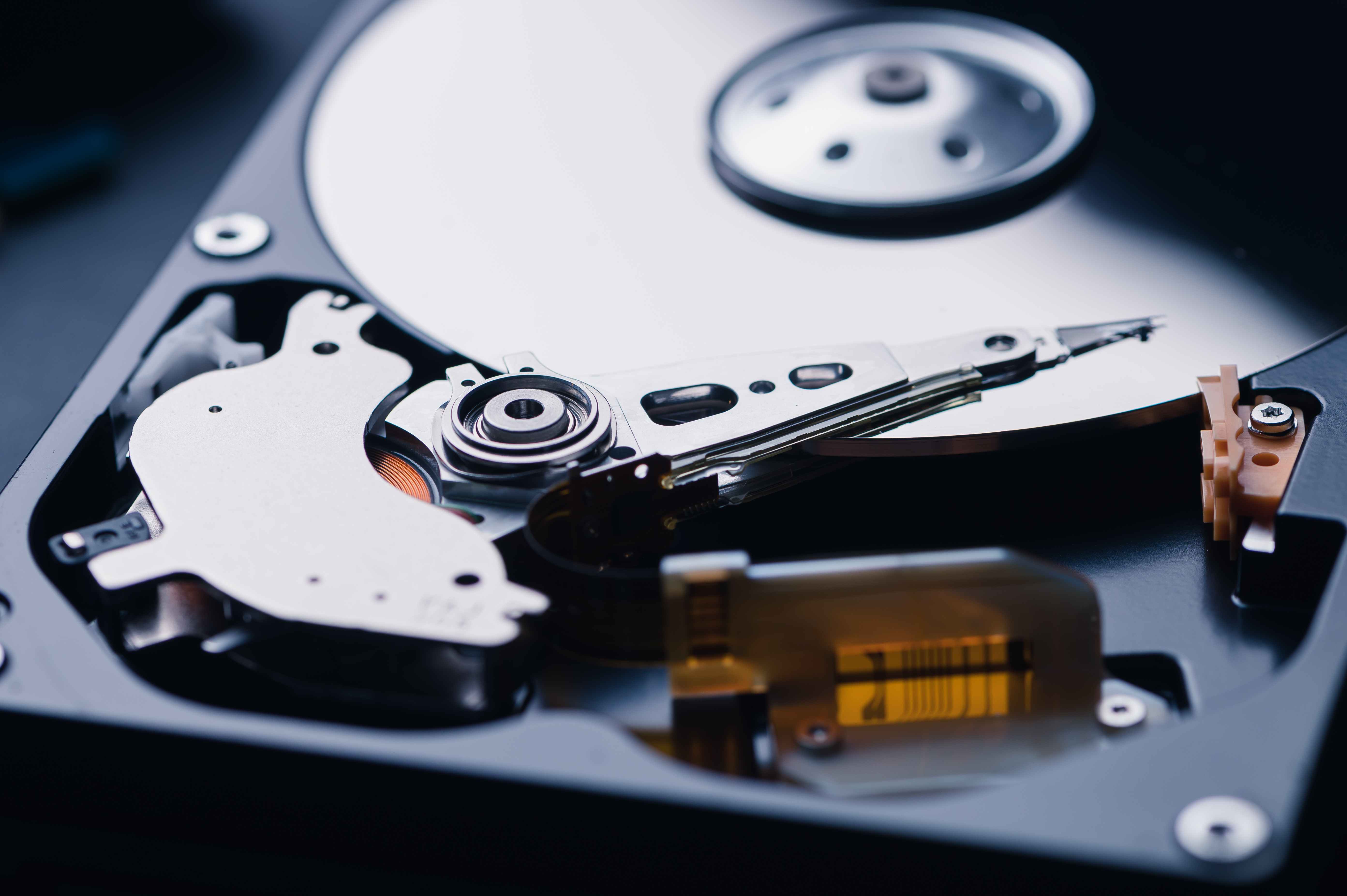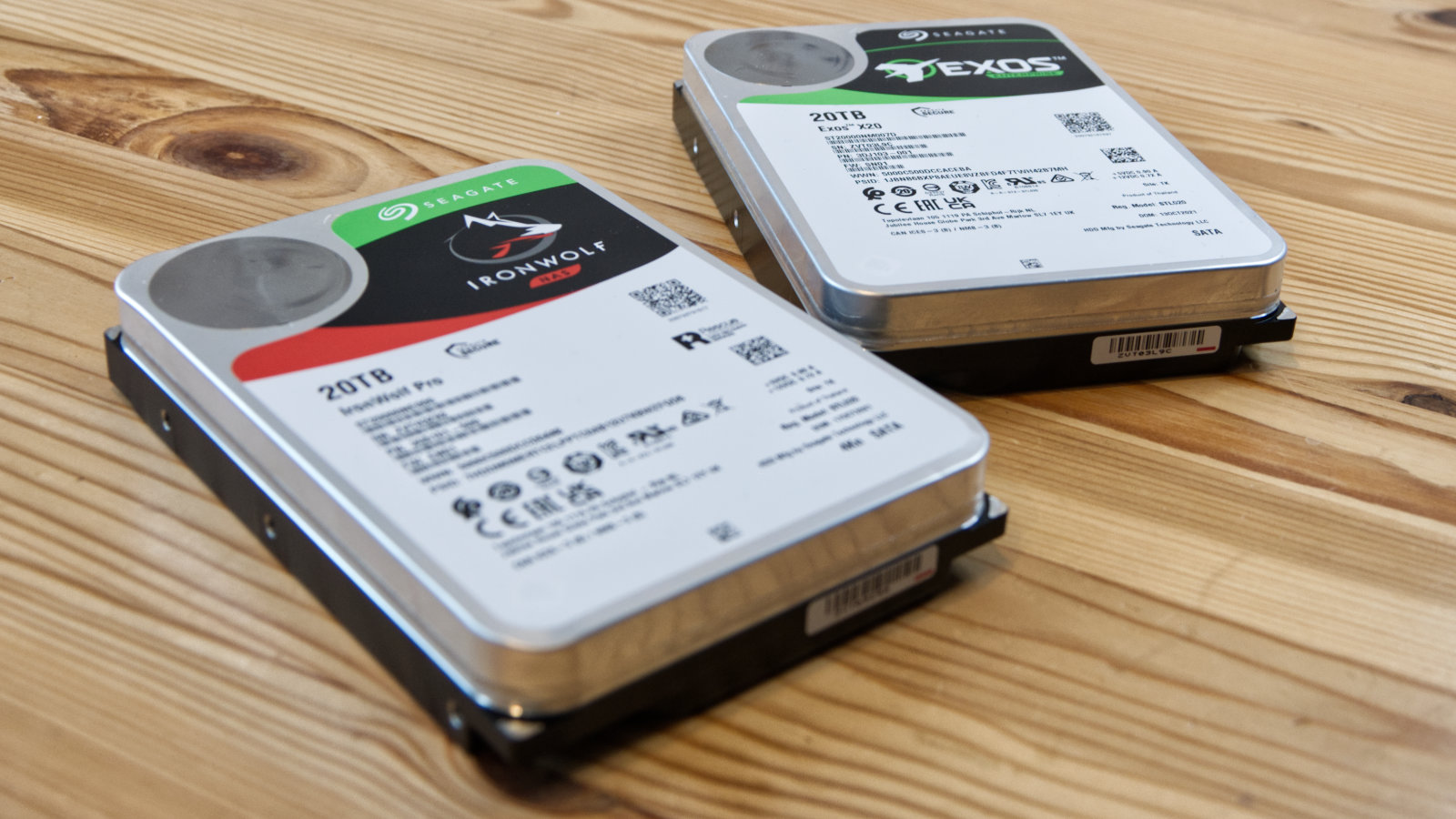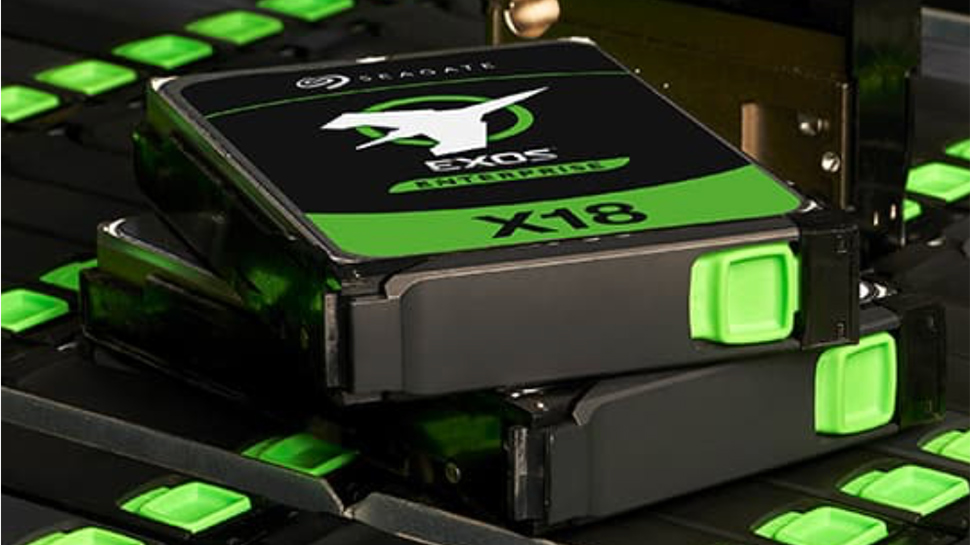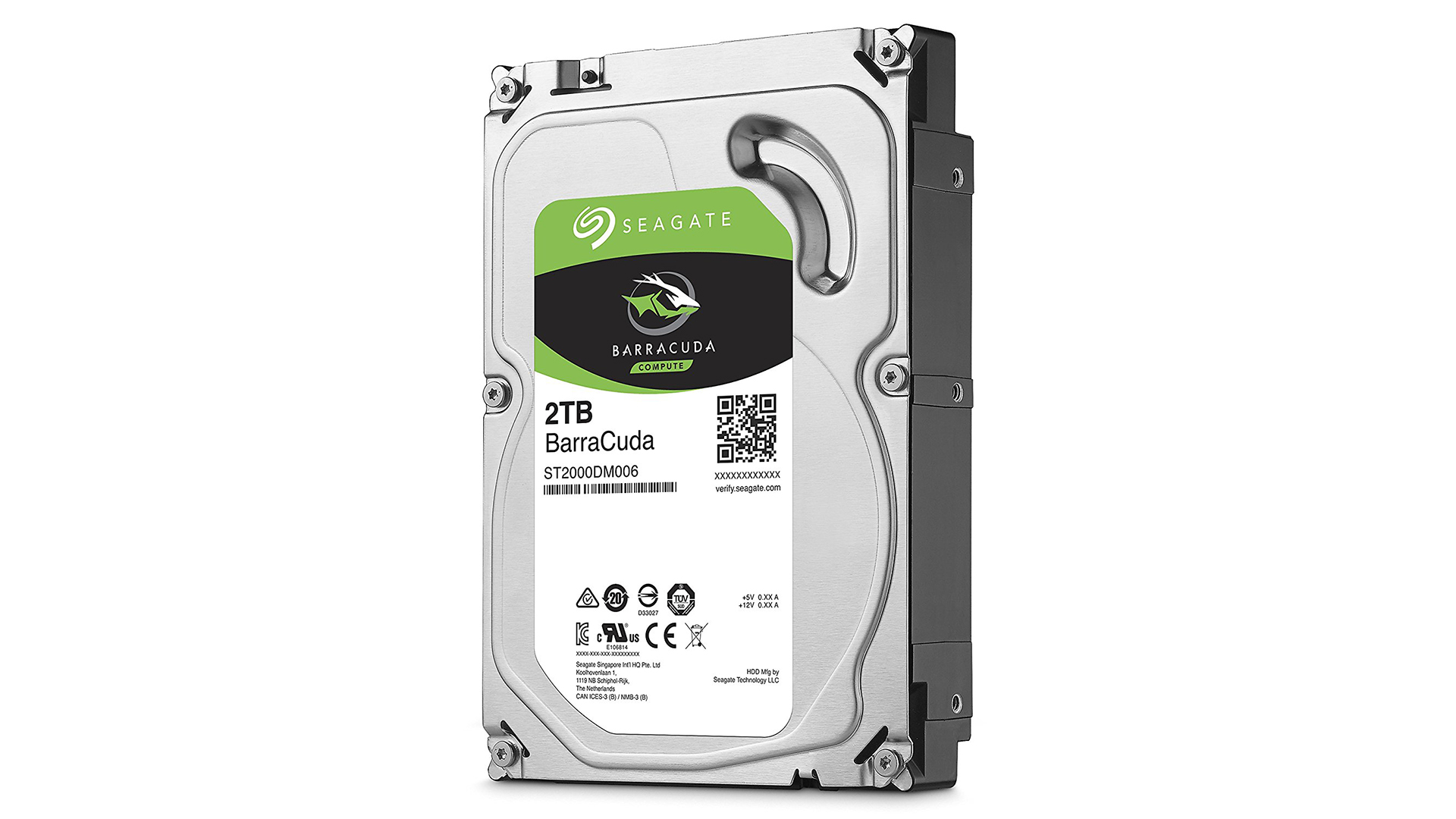Fastest hard drive 2025
Pick out one of the fastest hard drives out there to turbocharger your storage array.

Sign up for breaking news, reviews, opinion, top tech deals, and more.
You are now subscribed
Your newsletter sign-up was successful
There's more to the fastest hard drive than read or write speeds. You need to think about all kinds of factors including how you aim to use it, the volume of data involved, and whether you're looking to upgrade your laptop's HDD or even a network-attached storage (NAS) device. The considerations don't stop there, and understanding the nuances of what makes one of the fastest hard drives particularly useful for your needs is crucial.
While you may also consider choosing one of the best SSDs, sometimes it pays to opt for one of the best hard drives instead. You can generally store much more data and HDDs tend to be cheaper. There are advantages to SSDs too, of course, and it's easy to get sucked into the SSD vs HDD debate – but its usually the case that one suits a particular purpose over another at any one time.
Below we've rounded up the fastest hard drives that you can buy today – whether you're looking to upgrade the HDD in an existing device or set up a new storage array.
The fastest hard drive of 2026 in full:
Why you can trust TechRadar
We've extensively tested many of the best and fastest hard drive models on the market today for internal server, desktop, and laptop form factors, and have picked our top hard drives for each category below.
The fastest hard drive overall

Reasons to buy
Reasons to avoid
Seagate has been a constant presence in hard drive manufacturing and offers phenomenally fast HDDs. In that vein, Seagate Ironwolf Pro, which can now go up to 24TB, is a block of metal that encases up to 12 2TB platters that operate in a helium atmosphere – and can augment your storage array like few other devices. We It's designed specifically for the best NAS devices and it's ideal if you are seeking to build a backup regime for your content – including movies, photo albums, music, and other kinds of media, or even if you run a small business.
It boasts exceptional read and write speeds; we recorded speeds of 286.8MB/s and 279.3MBps respectively in the 20TB iteration, based on testing via CrystalDiskMark. This is roughly 10% faster than the previous 18TB drive and is sure to be matched by the newly launched 24TB iteration of the zippy HDD.
This 3.5in SATA HDD also has a 7200 RPM spindle speed, alongside a 512MB cache, with an annual workload of 550TB and mean time before failure of 1.2 million hours – meaning professionals can share and collaborate on large quantities of data. It’s a great option, if not on the pricier side, and the five-year warranty should offer some comfort should things go awry down the line.
The fastest server hard drive
2. Seagate EXOS MACH.2 2x18
We were amazed with Seagate's MACH.2 technology, which the company first launched in 2021 with the 3.5in Exos 2x14. This was the fastest hard drive at the time with data transfer rates of 524MB/s and incredible sequential read and write speeds.
The second generation of the Exos MACH.2 family was released in November 2022 with several variants, including a device that can hit speeds of 554MB/s based on a 12Gb/s interface access speed. These devices are also available in both SAS and SATA formats and are great options to boost data center performance.
These kinds of speeds, if they’re reached in real-world settings, can even rival some SSDs and offers far more bang for buck than many on the market. That said, pricing depends on several factors, so you’d have to get in touch directly with Seagate to get more information.
Designed primarily for servers based in data centers, the multi-actuator hard drive technology contains two independent actuators that transfer data concurrently. The upside of essentially double the performance with double the number of actuators comes at a cost of much higher power consumption, however, but this shouldn’t be a massive problem for its target market. These ultra-fast hyperscale drives are perfect for cloud-based performance workloads, and heavy workloads, and are certainly not suitable for home-based appliances.
The fastest hard drive for laptops
3. Seagate BarraCuda
Embedding a fast hard drive in your laptop can be key to unlocking the productivity you need. We recommend the Seagate BarraCuda series as one that can resolve your bottlenecks and file transfer woes. This is a 2.5in HDD using SMR technology – available in iterations up to 8TB – that offers a reliable and zippy storage option for critical files. Having been around since 2016, it's a brand known for being one of the fastest and best value options, with the latest versions operating with a SATA III interface, at 6Gb/s, as well as a 128MB buffer cache and a 5,400RPM spindle speed in most models, alongside a reported data transfer rate of up to 190MB/s.
There are slight variations in the different sizes, however. The 1TB and 2TB versions have a 7mm form factor, while options going up to 8TB are 15mm tall. The 1TB, 2TB and 500GB versions also have a spindle speed of 7200RPM (there are two versions of the 2TB HDD), while these smaller options can also hit data transfer speeds of 220MB/s in the 2TB and 210MB/s in the 1TB and 500GB version. If speed is your priority, the fastest hard drive for notebooks right now is the 2TB option.
Today's best deals
Backup large drives online with cloud storage IDrive, the cloud backup veteran, delivers tons of storage online for an incredibly small outlay. 10TB for $3.98 for the first year is unmatched till now and so is the support for unlimited devices and the extensive file versioning system available. Even the biggest SSD or HDD need a cloud storage to secure data.
Get in touch
- Want to find out about commercial or marketing opportunities? Click here
- Out of date info, errors, complaints or broken links? Give us a nudge
- Got a suggestion for a product or service provider? Message us directly
- You've reached the end of the page. Jump back up to the top ^
Sign up to the TechRadar Pro newsletter to get all the top news, opinion, features and guidance your business needs to succeed!

Désiré has been musing and writing about technology during a career spanning four decades. He dabbled in website builders and web hosting when DHTML and frames were in vogue and started narrating about the impact of technology on society just before the start of the Y2K hysteria at the turn of the last millennium.
- John LoefflerComponents Editor


